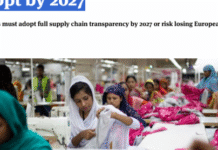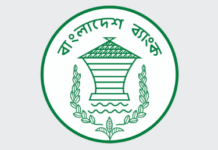
Bangladesh may witness slower economic growth in the coming future if it retains the consumption-led growth, which will also exacerbate the widening inequality, said a development economist yesterday.
Although the country’s economic development is considered as a miracle, the growth has largely been led by consumption in the last several years, not by investment, said Prof Rashed Al Mahmud Titumir, chairman of the development studies department at the University of Dhaka.
It is not the sustainable path of development, he said.
The economist made the remarks at a book review seminar on “Interdisciplinary Studies on State Building and Transformation” at the Muzaffar Ahmed Chowdhury Auditorium in the university.
The development studies department organised the seminar where the reviews of eight books written by Prof Titumir were presented.
Although the country’s economic development is considered as a miracle, the growth has largely been led by consumption in the last several years, not by investment
Consumption-led growth relies on higher consumer spending to raise aggregate demand. On the other hand, investment-led growth relies on investment to create new capacity. This, in turn, creates more jobs and higher demand.
“If a country becomes a consumption-based economy, its import remains very high but the growth of job creation slows. Finally, it causes problems in the country’s balance of payments,” said Titumir.
The economist also talked about the reasons for the fall in agriculture productivity.
The owners of the lands are not cultivating their land. Rather, they want to sell it at a higher price. On the other hand, farmers, who are involved in the cultivation of crops, can’t buy the land.
“Third parties usually buy the land. So, the price of land in Bangladesh is high,” said Prof Titumir.
Due to the rise of population, the land is shrinking or split into several portions, so the cost of farming is going up.
“So, either you will have to go for collective cultivation which is a political decision, or a large-scale contract farming,” he said.
Prof Niaz Ahmed Khan, pro vice-chancellor of the Independent University, and Prof Taiabur Rahman, dean of the School of Liberal Arts and Social Sciences of the same university, jointly chaired the event. DU Social Sciences Faculty Dean Md Ziaur Rahman also spoke.
Md Juwel Ahmed Sarkar, assistant professor of the development studies department of the Hajee Mohammad Danesh Science and Technology University; Bayezid Khan and Md Zobayer Hossain, both assistant professor of the development studies discipline at Khulna University; ABM Omor Faruque, assistant professor of the development studies department at the DU; Shashish Shami Kamal, assistant professor of the development studies department of the Bangladesh University of Professionals; Shahriar Bulbul Tonmoy, lecturer of the department of development studies at the University of Chittagong; and Niamot Ali Enayet, a lecturer of the department of development studies at the Daffodil International University, presented the book reviews, among others.










